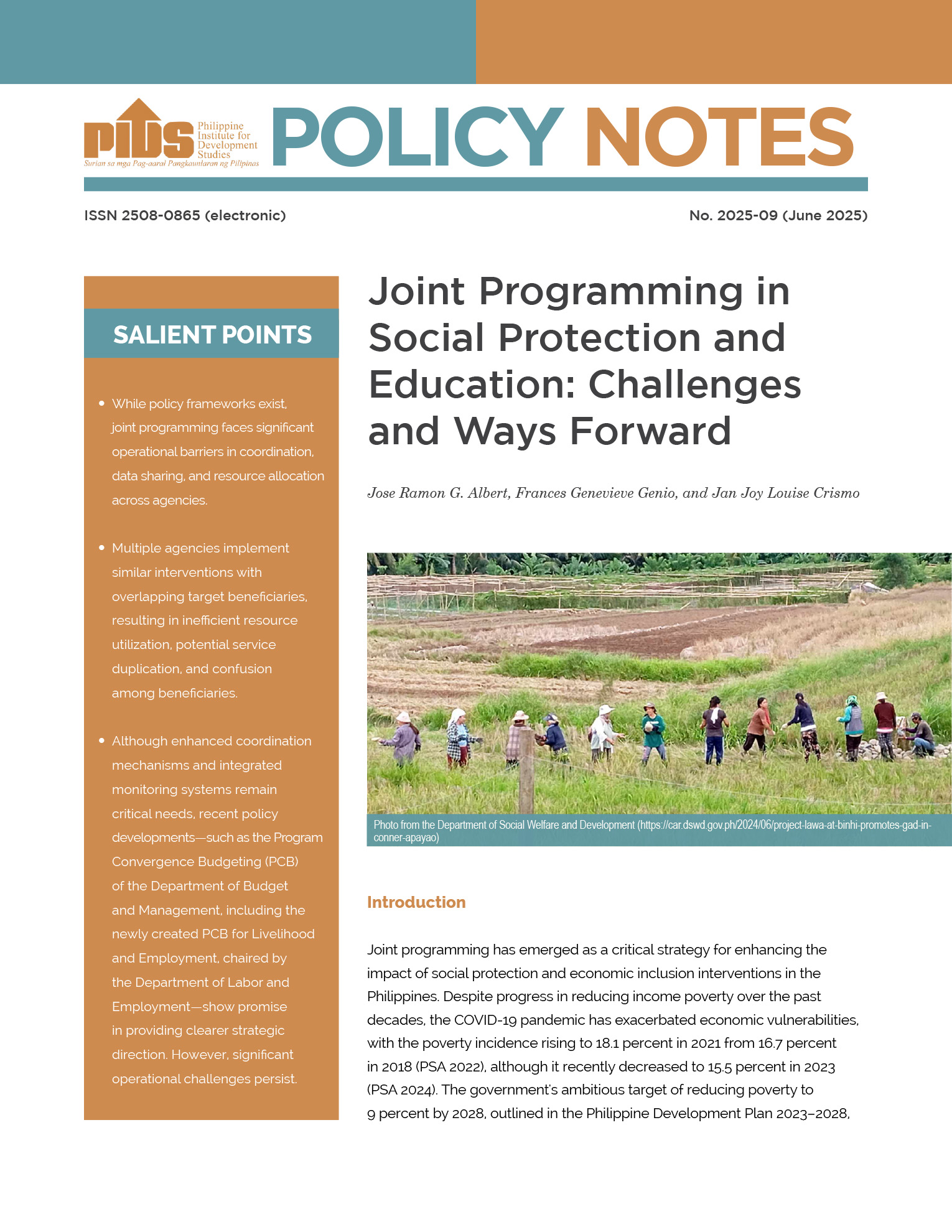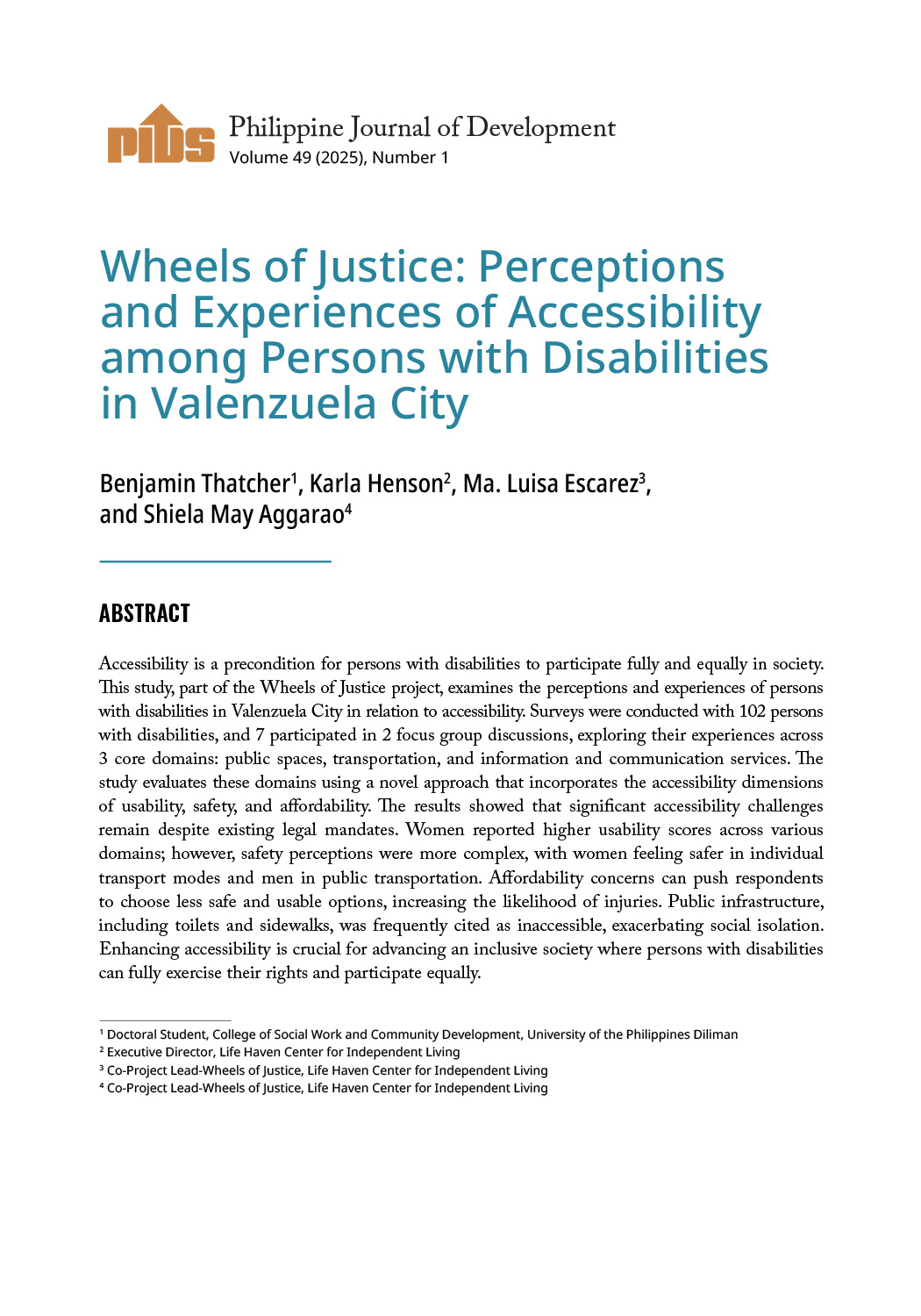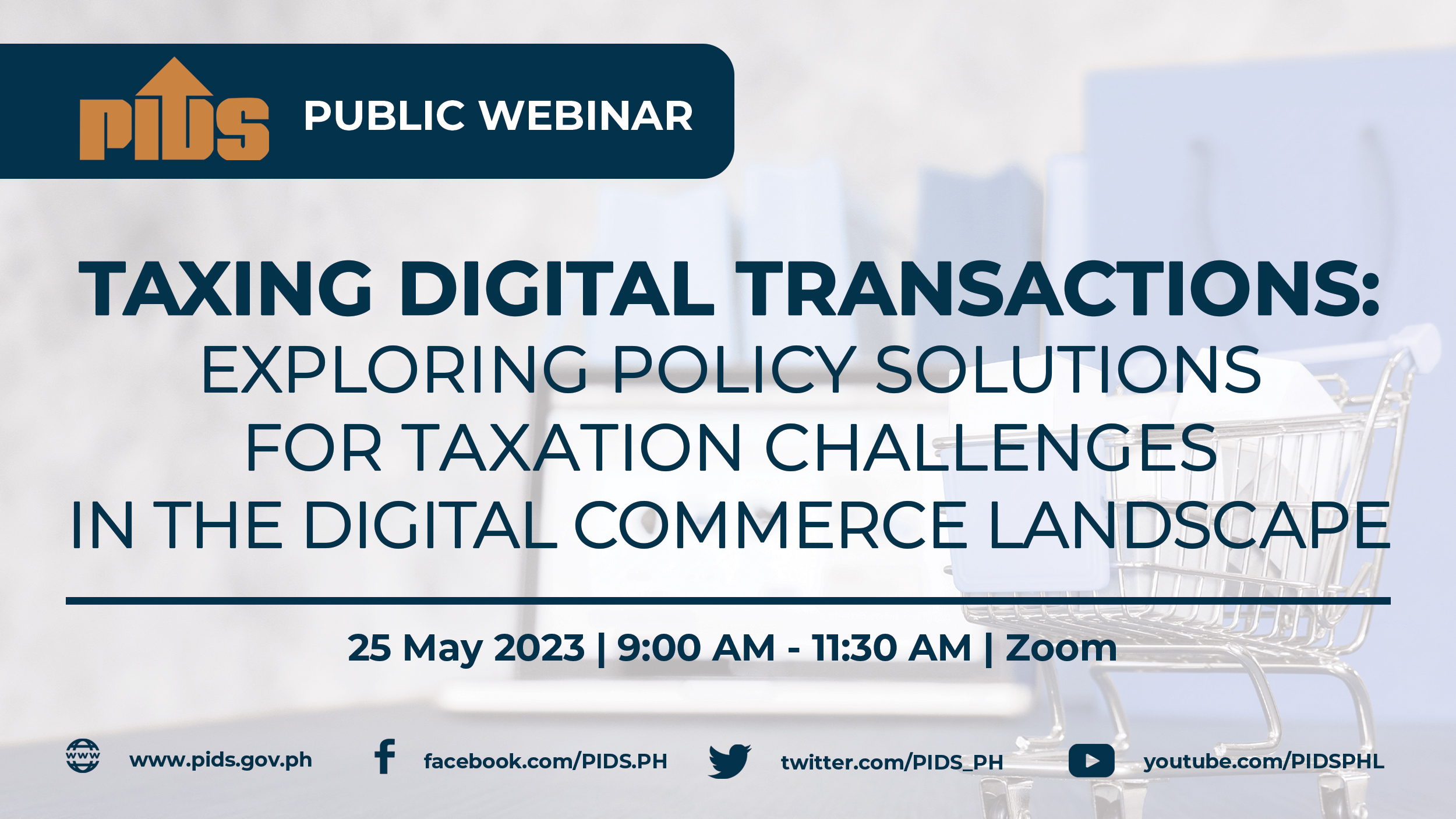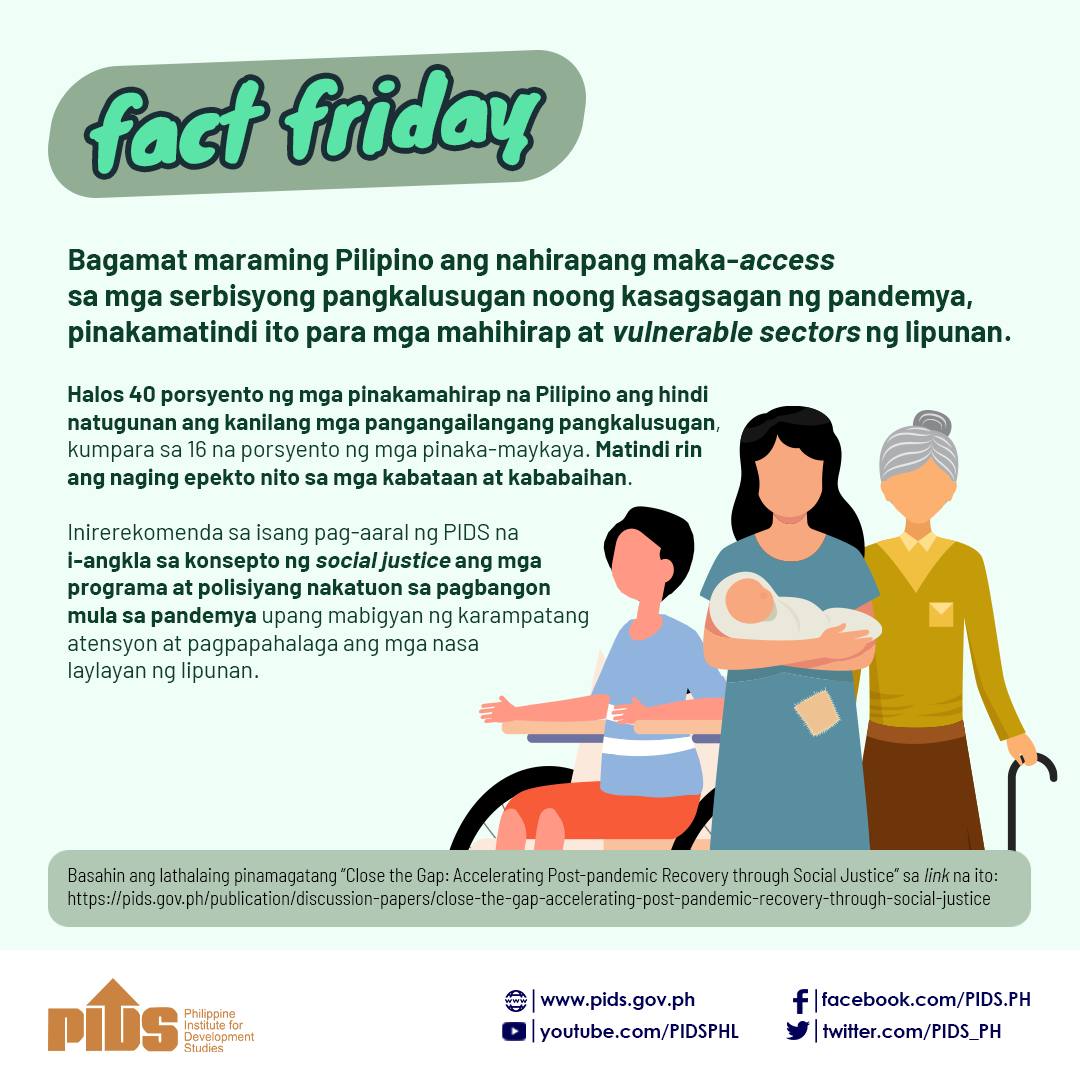National and local governments should adopt smart solutions and invest in emerging technologies to deal with climate change, natural hazards and the coronavirus disease 2019 (Covid-19) pandemic.
State-run think tank Philippine Institute for Development Studies (PIDS) researchers Aubrey Tabuga, Sonny Domingo, Charlotte Justine Sicat and Valerie Gilbert Ulep emphasized this in a discussion paper, titled “Innovating Governance: Building Resilience Against Covid-19 Pandemic and Other Risks.”
“The Covid-19 pandemic has brought immense challenges to a country already overwhelmed with many social problems, many of which relate to the lack of access to basic services,” the authors said.
They underscored that not having adequate capacity to curb the spread of Covid-19 through more effective contact-tracing, efficient information systems and coordinative structures, among others, resulted in the government imposing measures whose unintentional effects include economic contraction and an impending eradication of any recent gain in poverty reduction efforts.
The impact of the pandemic-related lockdowns has plunged the economy into a recession after domestic output shrank by 16.5 percent in the second quarter.
“The government must substantially improve all its efforts in not only enhancing basic capacities, but also in retooling [them] toward an innovative culture for building resilience against future risks and threats,” the authors said.
In the public sector, they acknowledged that investing in digital education, electronic commerce and innovative ways of delivering social protection, as well as fostering business innovations, are important to meet fast-changing demand.
For local government units, providing critical services to the public, “particularly in the sectors of public health, agriculture and social welfare,” required smart solutions that “can provide digital avenues for health consultation, agricultural extension and research, and social protection and monitoring.”
The researchers emphasized that strengthening the civil service’s multidimensional (analytical, operational and political) and multilevel (individual, organizational and systemic) capacities are essential in carrying out policy mandates and developing public sector innovations.
The Philippines must also implement knowledge-scanning strategies or lateral innovation techniques where effective feedback loop systems and contributions from frontline workers, managers and external knowledge sources are particularly important.
The authors said the country must also implement reforms to build or enhance the needed capabilities of the health system and foster an enabling environment for research and development.
They added that a well-designed electronic government platforms are crucial in achieving efficiency in delivering services, but the digital divide must be addressed first.
“Despite the high internet penetration, many people in rural areas and in poor households do not have access to computers and the internet, and lack computer literacy,” they said.
Thus, efforts to improve service delivery through online platforms are promising, but these entail a rather holistic approach of information and communications technology infrastructure development, clear and implementable policy for integration, and improvement of basic and computer literacy of people, especially marginalized sectors.
“All the abovementioned requirements for developing capacities of the public sector and corollary aspects toward building resilience entail long-term, proactive planning,” the authors said.
“To succeed in meeting future challenges, proactive approaches must be adapted by the government in various aspects of governance and in all stages of the policy cycle,” they added.
Adopt smart solutions vs pandemic, govt told












